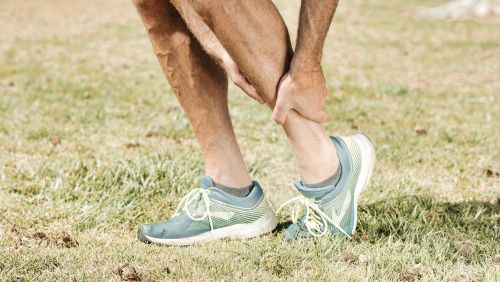



It is easy to fall into the trap that every accident and injury that occurs at work is going to be a work-related injury. The Virginia Workers' Compensation Commission has repeatedly held that to prove an injury by accident, the evidence presented must demonstrate four things: "there must be an identifiable accident; the accident must occur at some reasonably definite time; an obvious sudden mechanical or structural change in the body; and a causal connection between the incident and bodily change (1)." Imagine the following scenario:
A driver calls you one afternoon, saying that his knee hurts. You ask him what happened, and he states that he's okay; nothing happened, but he was walking out to the truck, and his knee started hurting really bad, and he can't walk or put any weight on it. You ask him if he fell. No. You ask him if he tripped. No. You ask him what he was doing? "Just walking." You now have everyone's favorite situation: someone claiming an injury while on the job.
The distinction here is an "injury while on the job" versus an "injury from the job." In the above scenario, we have no idea what actually happened to the driver. He was "just walking." If you apply this to the factors identified above, you can see the issues a little more clearly.
First, is there an identifiable accident? There is no slip, trip, or fall. This injury apparently occurred while walking. Is taking a step in and of itself enough to be the basis for a claim?
Next, we look at the timing. Here, we can identify when the call came in. While it's uncertain what the issue or problem was, there is a time frame associated with the reported "injury."
Third, is there a mechanical or structural change in the body? Here, the driver reports not being able to walk or even put any weight on the knee.
Finally, is there a causal connection between the 'incident' and the bodily change? As with the first part, we first answer the following phrase: "The injury occurred when he ______." Here, you may say that the injury occurred when he took a step. That would be a fair, reasoned, and prudent analysis. This driver was "on the job" while he was walking and taking a step, which caused him to experience this pain. Even though there is nothing to suggest that his gait, stride, or even the ground caused whatever pain and discomfort he is experiencing, it still occurred while on the job, right? The Virginia Commission has long held that the employee bears the burden of proof that the conditions of the workplace or some significant work-related exertion caused their injury (2). "Simple acts of walking, bending, reaching, or turning, without any work-related exertion or award contributing factors, are not considered to be risks of one's employment." Back in 1925, the Virginia Supreme Court recognized that the phrase "arising out of" was highly relevant in establishing the scope by which accidents should be evaluated.
"By the use of these words [arising out of], it was not the intention of the legislature to make the employer an insurer against all accidental injuries which might happen to the employee while in the course of the employment, but only for such injuries arising from or growing out of the risks peculiar to the nature of the work, in the scope of the workman's employment or incidental to such employment, and accidents to which the employee is exposed in a special degree by reason of such employment." Dreyfus & Co. v. Meade, 142 Va. 567, 570, 129 S.E. 336, 336-37 (1925).
Merely walking, without more explanation or detail, should not be a sufficient basis for anyone to receive workers' compensation benefits. This ultimately becomes a proof issue. What can we prove? What evidence do we have? It is not merely a question of what happened but what can we prove. Stories change. Explanations can be altered. Evidence is what it shows. What if the driver in our story decided to change his story and say that he wasn't walking to his truck but climbing into it when he felt the pain? Now it may be deemed compensable unless you have proof that he made a different statement. The last thing we want is for you to have to look to the commissioner and say, "But he was just walking." For reasons such as these, it is vital that you conduct a timely investigation of these claims. If someone says they were hurt by walking, put that in writing, or memorialize that somehow.
If you have questions about how you should be conducting post-accident or post-injury investigations, or if you’d like a review of the workers’ compensation process, give us a call. We'll help you review your practices, policies, and procedures and try to help you make use of the best practices and protocols. If you have specific questions related to this article, or about workers’ compensation in general, please contact John Stacy (jstacy@setlifflaw.com) at (804) 377-1263 or Steve Setliff (ssetliff@setlifflaw.com) at (804) 377-1261.
Plumb Rite Plumber Serv. V. Barbour, 8 Va App. 482 (1989)
© 2025 Setliff Law, P.C.| View Our Disclaimer | Privacy Policy